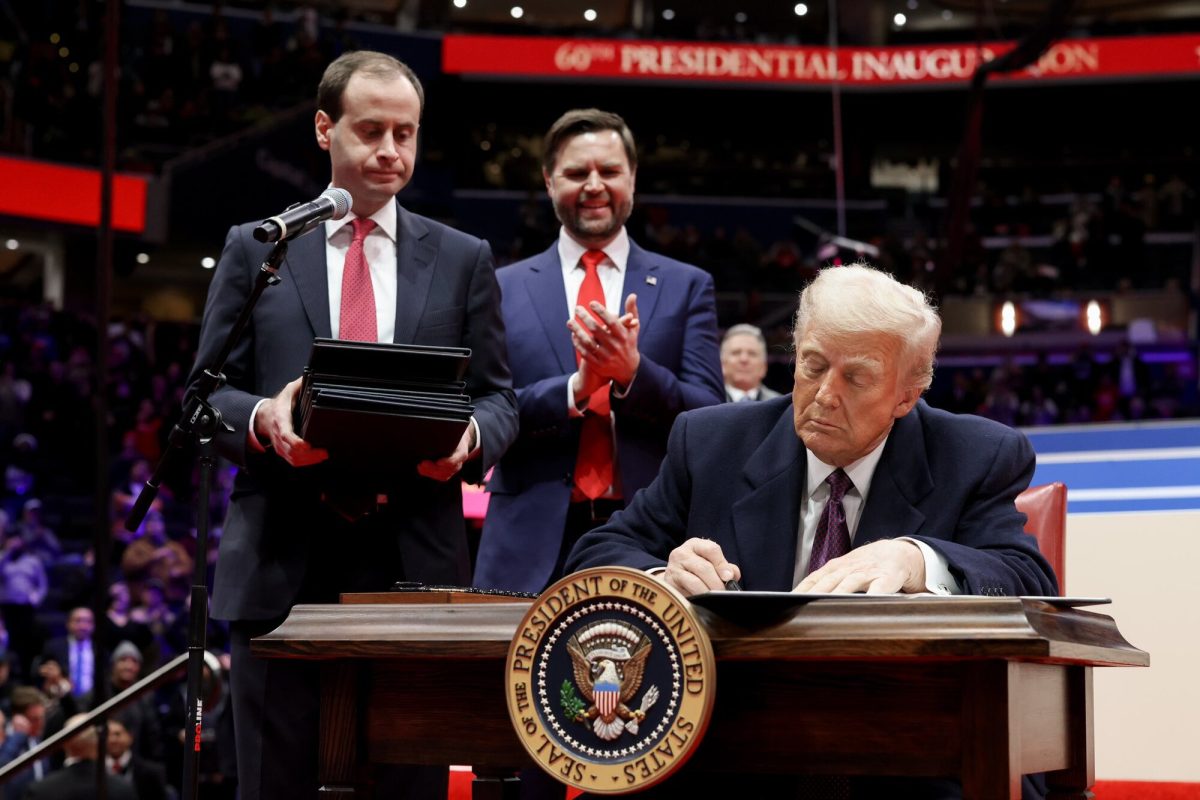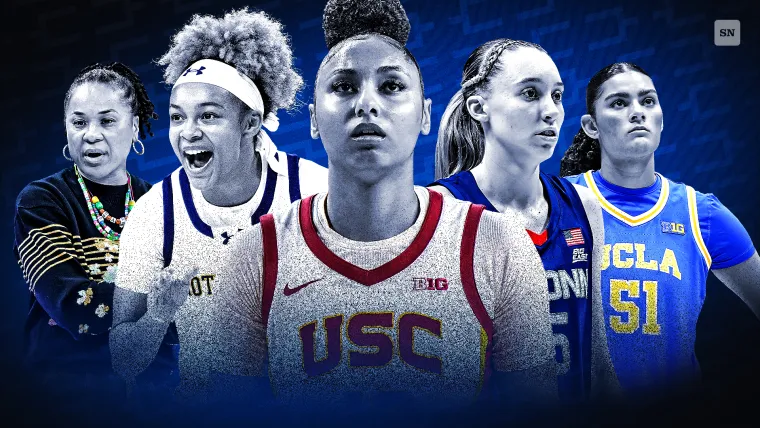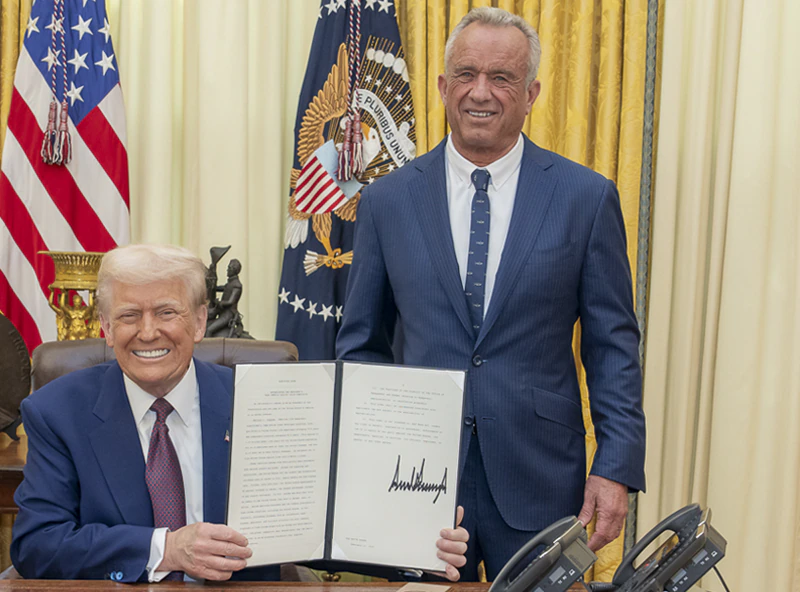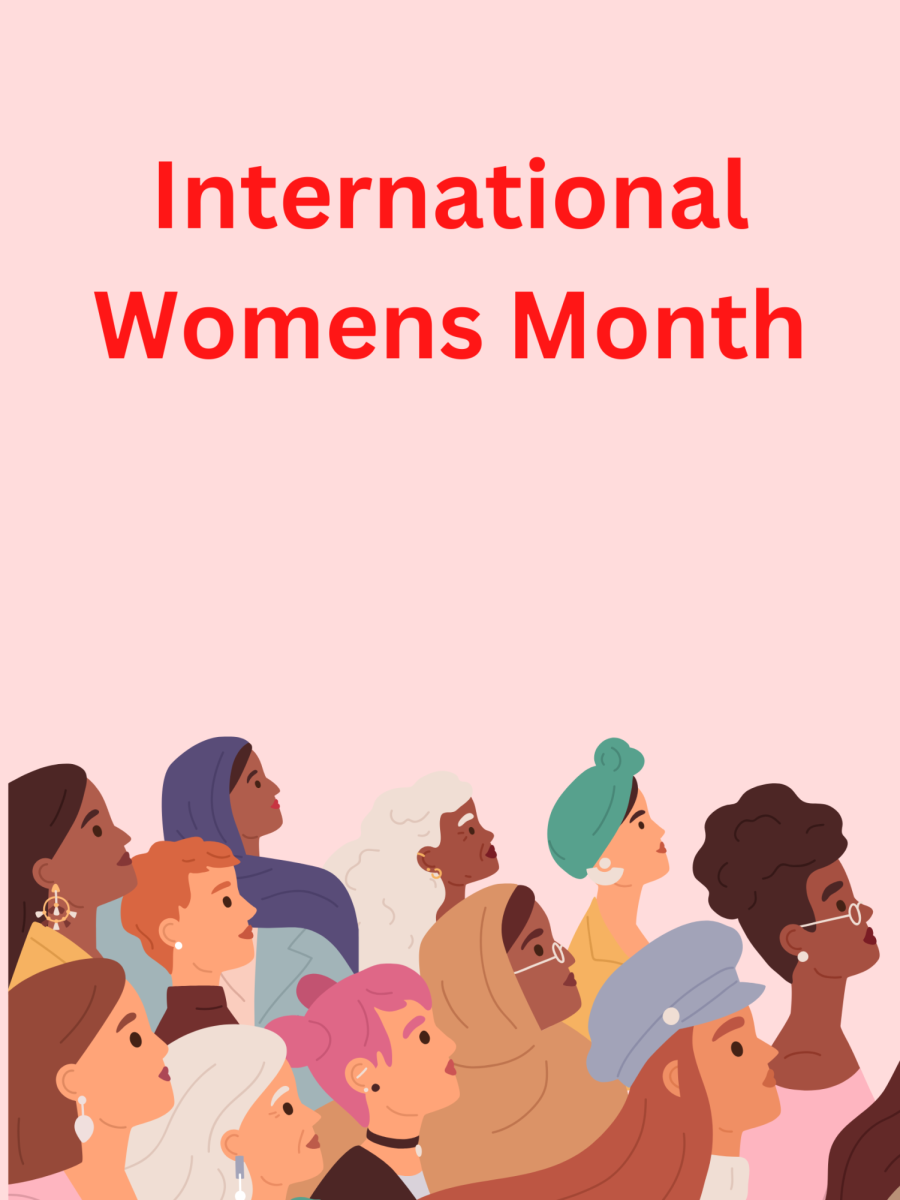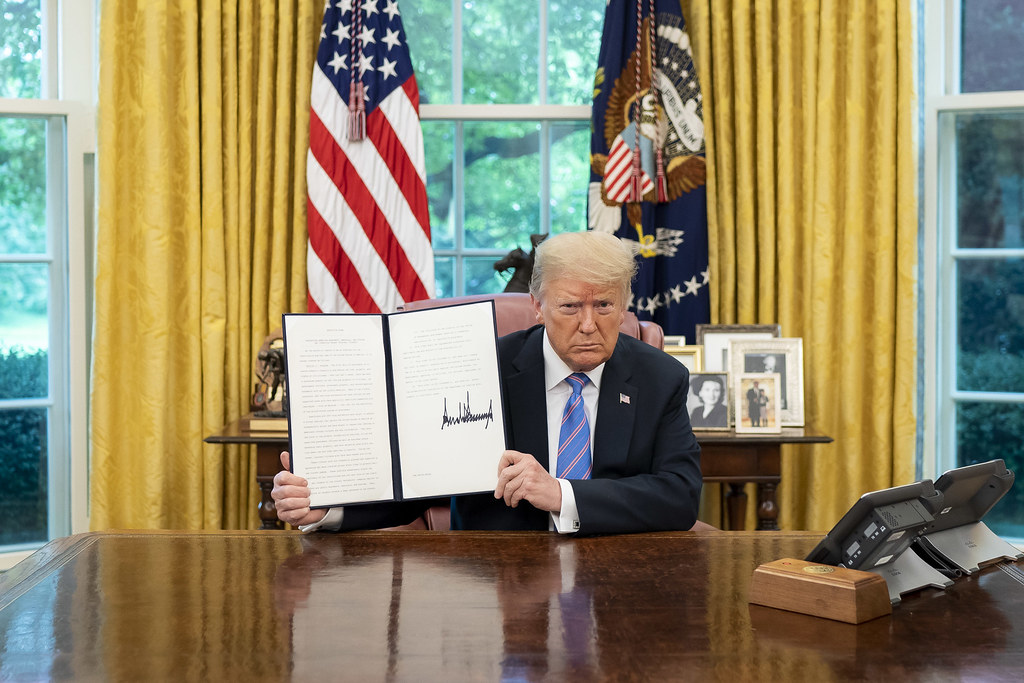TikTok— the short-form video app with 170 million American users. The app that produced 11 billion in U.S. revenue in 2024. The app that’s also been banned in 13 countries and regions in the world, including all US government devices. TikTok is an incredible producer of profit in the American entertainment industry; but at what cost? It’s putting citizen’s online data at risk and increasing tensions with one of America’s primary competitors; posing risks to U.S. security and economic interests.
In addition to defense concerns, the app puts specifically American teenagers at risk. Currently, the majority of teens ages 13-17 (58%) use TikTok daily, with nearly half saying they are on it “almost constantly”. Although the demographic can’t vote, they’re put in a dangerous position with the flood of misinformation; after all, many are obsessed with the app.
“I’ve definitely seen people get addicted to TikTok and other social media apps because it takes them out of their own world and they can just look at other people’s lives,” junior Olivia Helling said. “A lot of people that I know go on their phone just to watch TikTok.”
Described as “the new Google,” TikTok has increasingly become the primary source of information for teens. But alarmingly, a study by NewsGuard found that almost 20% of videos contained false or misleading claims.
“A lot of people, their feed is what they want to hear, so they get stuck in an echo chamber,” junior Matthew Morningstar said. “And so they only get what they believe. It just makes people not talk to each other and it causes arguments and disputes, which is what we see in politics.
The next generation of voters are fed a stream of false information over and over, ranging from health to political issues. For example, according to NewsGuard, a search for herbal abortion techniques brings a slew of unsafe and unproven abortion methods, such as drinking mugwort tea, or ingesting extremely toxic pennyroyal, which is proven by medical experts to be lethal, with several deaths attributed to its use.
In addition, searches such as “2020 Election Stolen” or “January 6 FBI” returned roughly 30% misinformative videos, according to NewsGuard. For an app that promoted itself as a learning platform in 2022, with the hashtag #TikTokTaughtMe, the amount of deception is dangerous.
“Every app has misinformation! It’s not just TikTok!” While this is true, 35% of TikTok users found untrue information every time they used the app, the second-highest of any social media platform. Facebook came in first, with 42% of users finding untrue information. However, it’s no secret that Facebook’s primary audience is composed of the older generation, with 82% of users being 25 or older. Compare this to TikTok, with 55% of users being under 30, and 1 in 4 being under 20.
Researchers have proven that teenagers are more susceptible to misinformation, with a significant increase in online conspiracy theory belief compared to the older generation. Teens are likely to not even realize the falsity of their information, making it probable that the amount of misinformation on TikTok users receive is even higher than expected.
Furthermore, TikTok’s primary concern is the security issues; the app is already banned on all federal-owned mobile devices. TikTok’s parent company, ByteDance, has long maintained that it does not and will not share user’s data with the Chinese government.
However, Shawn Henry, chief security officer of cybersecurity company CrowdStrike, told CBS Mornings that security concerns were “completely valid.”
“China wants to be the No. 1 superpower in the world and they have been targeting U.S. technology, U.S. personal information. They’ve been doing electronic espionage for several decades now,” Henry said. “TikTok is just another activity, another opportunity for them to gain access to people’s information, to see what people are thinking about, to potentially influence the way people think by putting misinformation into their app.”
While no link between ByteDance and the Chinese Communist Party (CCP) has been found, the company has a long list of privacy scandals. In 2022, TikTok employees were found guilty of using the app to spy on journalists, tracking their IP addresses.
The employees were fired, and both TikTok and ByteDance denied any part in the scandal. Despite this, the issue showed that it’s all too easy to exploit the app for nefarious purposes.
“They were using and taking the user’s private data and sending it to out of the country people. They were monitoring US citizens,” Morningstar said.
In 2019, it was also reported that TikTok instructed it’s moderators to censor videos containing topics seen as controversial by the CCP. Since then, TikTok stated that the guidelines are no longer in use.
The bipartisan bill that President Biden signed into law last year gave the app an ultimatum— they had a year to find a buyer or the app would be banned. As America approaches the year mark, both have been unable to happen. Few names have been floated as possible buyers, since the app is worth upward of $200 billion, along with ByteDance’s refusal to sell.
“We do not trust TikTok will ever embrace American values,” Cathy Rodgers, the Republican chair of the House Energy and Commerce Committee, said at a congressional hearing in 2023. “TikTok has repeatedly chosen the path for more control, more surveillance and more manipulation. Your platform should be banned.”
The First Amendment has been cited in the overall struggle; as it was previously uncertain if banning TikTok would violate free speech. On Jan. 17, the Supreme Court ruled that it is constitutional, and the federal government can legally shut down the app. The ban went into effect on Jan. 19, with U.S. unable to access the app.
However, President Trump, who had previously been in favor of the ban, reversed his opinion and now supports keeping the app. On Jan. 20, on his first day in office, President Trump issued an executive order delaying the ban for 75 days. Users who hadn’t already deleted the app were able to resume using TikTok.
Morningstar supported the government’s involvement in the digital threat. “The government should play the entire role, because it’s their job to help protect from any threat, foreign or domestic, and anything online,” Morningstar said.
If TikTok is eventually banned, new users will be unable to download the app, and previous users unable to download software and security updates. Over time, such will make the app unusable.
Ultimately, the fate of TikTok is still unsure, but with young Americans at risk, now is the time to take action. The future of America is in the hands of lawmakers, and if protecting the country from misinformation and security risks is a priority, the decision is clear.


